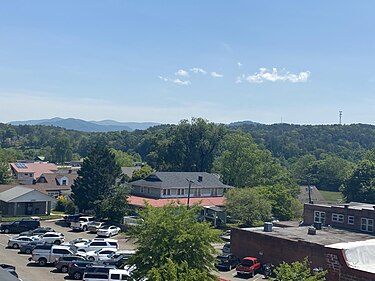Community economic systems Part 1
Gladys Foster (mother of Lynn, my partner in work and life) once told me that economics is about provisioning, not money: provisioning human (and now ecological) needs.
These next two blog posts will consider community provisioning systems. The first one, here, will discuss an actual community economic system being developed in Ellijay, Georgia, USA. The second will consider how Valueflows might be able to help.
Here is a previous post about community economic systems for flavor: A Fractal Economy. This other post gets into some details about coordinating economic networks, which would be a good form for a community economy: Synchronization and Coordination.
Ellijay: an example community economic system being born (maybe):

Andrew Roach of Ellijay, Georgia is chatting about organizing a community economic system in a Social.coop thread.
I will copy and paste some important bits below. But the “Show More” button works, and the link at the bottom of the “Show More” excerpt opens a new tab on the whole thread.
Andrew writes:
“Let's start with the vision:
“I want to live my life outside the rule of megacorps and rent seekers.
“I want to excise Extractive Economics and Surveillance Capitalism from my life.
“I want to build a community that can sustain, that can keep it's money circulating within the community. A community that is built around the idea of enriching one another.
“That's hard!”
More of Andrew's intentions:
The main intent for this discussion is below the fold: “We have to treat ourselves like a separate economy, and focus on what we can sell to the world (export, extract from them) versus what we have to buy from the world (import, extract from us) versus what we can keep circulating within our community.”
(This blog thinks this is best done as a local Circular Economy but that might be too big a leap from where Ellijay is now.)
Where to start?
Most attempts at community economies that I have seen start with food. Andrew starts very differently:
Even before the Community Web Infrastructure:
Andrew was known to the Ellijay region for running the Ellijay Coffee House featuring many local musicians, making toys, and making movies.
More background:
Food? Pottery! Toys! Books! Music! Radio! TV! Computers! Social media! Software! But Andrew says it's not enough.
If you want to organize anything locally, it helps if people know you and you have contributed something to the community. Fun might be a good contribution to start with.
Where's the food? When do we eat?
“We grow food! Not enough for a whole community, obviously, I'm not a full time farmer. But enough to supplement for our neighbors.”
I think they need partners to really provision food. Real farms with real farmers.
But who provisions the farmers? They probably have land, but if they have machinery, it needs fuel and often repairs. Otherwise, they might want some machinery, unless they're going Amish, in which case, horses! And they need seed and a bunch of other farm inputs. And a lot of work.
So a circular economy will need to also provision the farmers. And the farm equipment repair people. And the farm equipment makers, who could be the same as the repair people: refurbished older machinery is often better for small farms than the new stuff. (And don't forget the horses...)
Lotta organizing needs to be done. See the end of https://write.as/economic-networks/a-fractal-economy
They got the music, they could stage such a scene...
Next
We'll see if Valueflows could help...could plug right into that Community Web Infrastructure...
